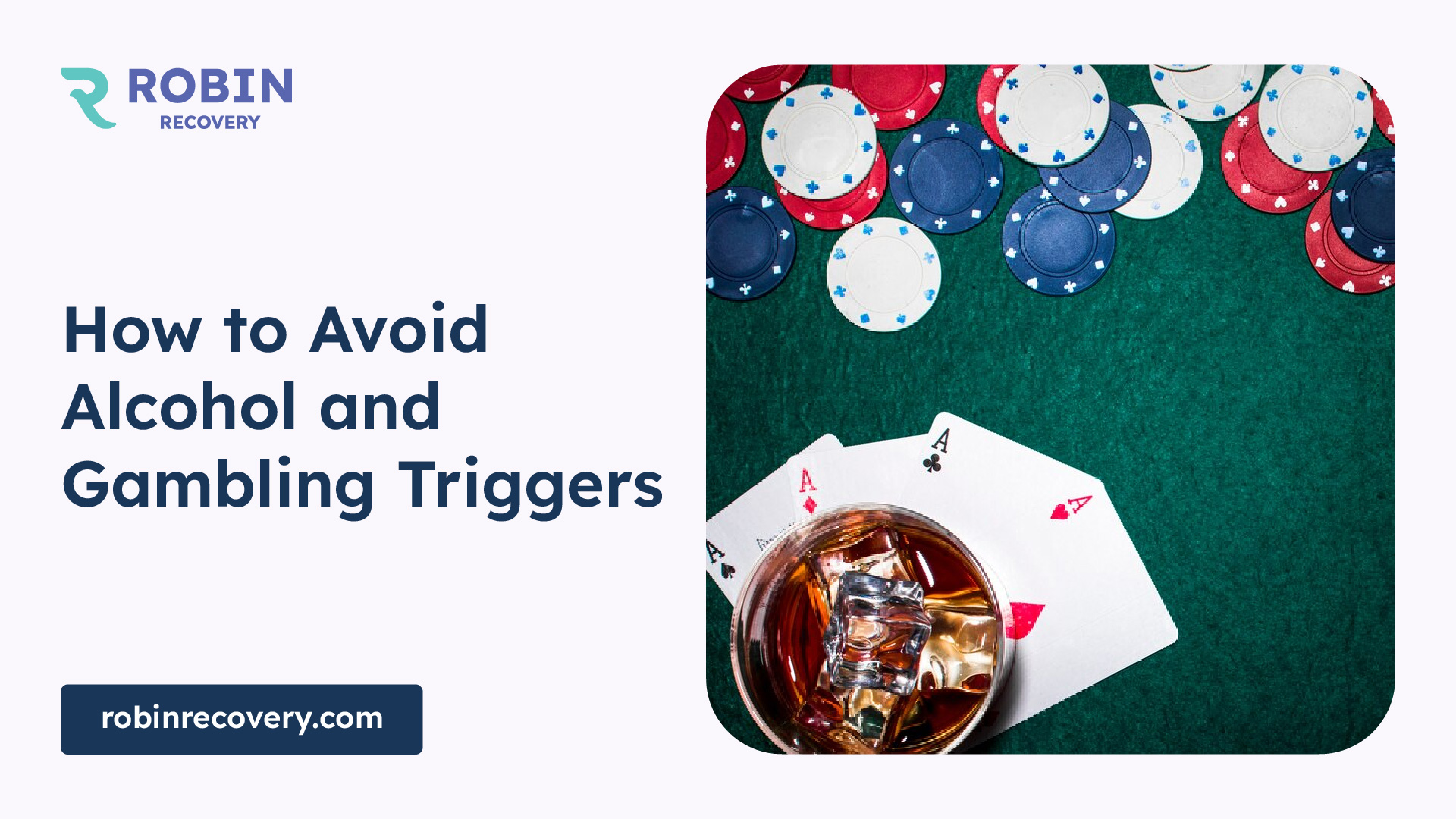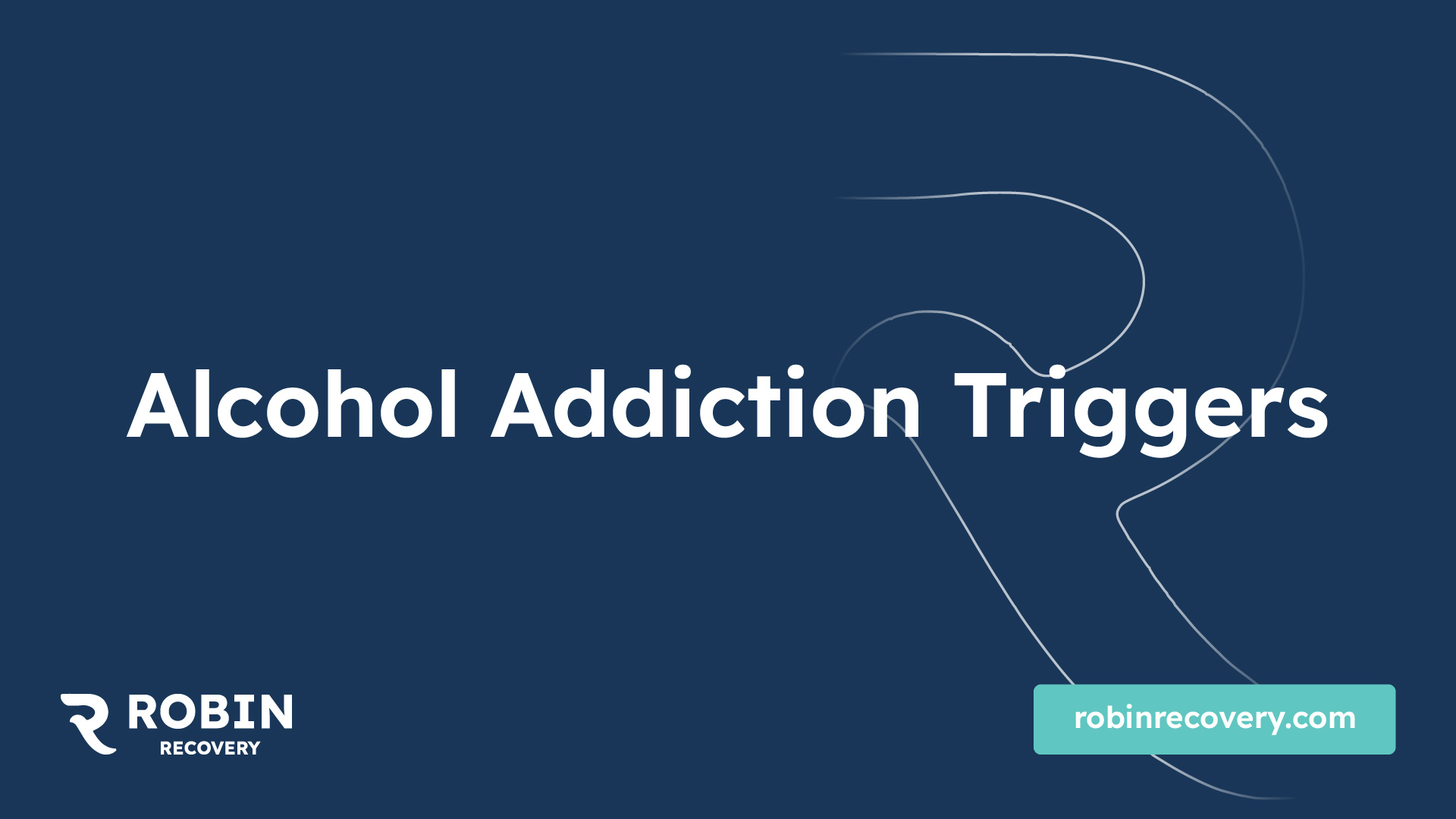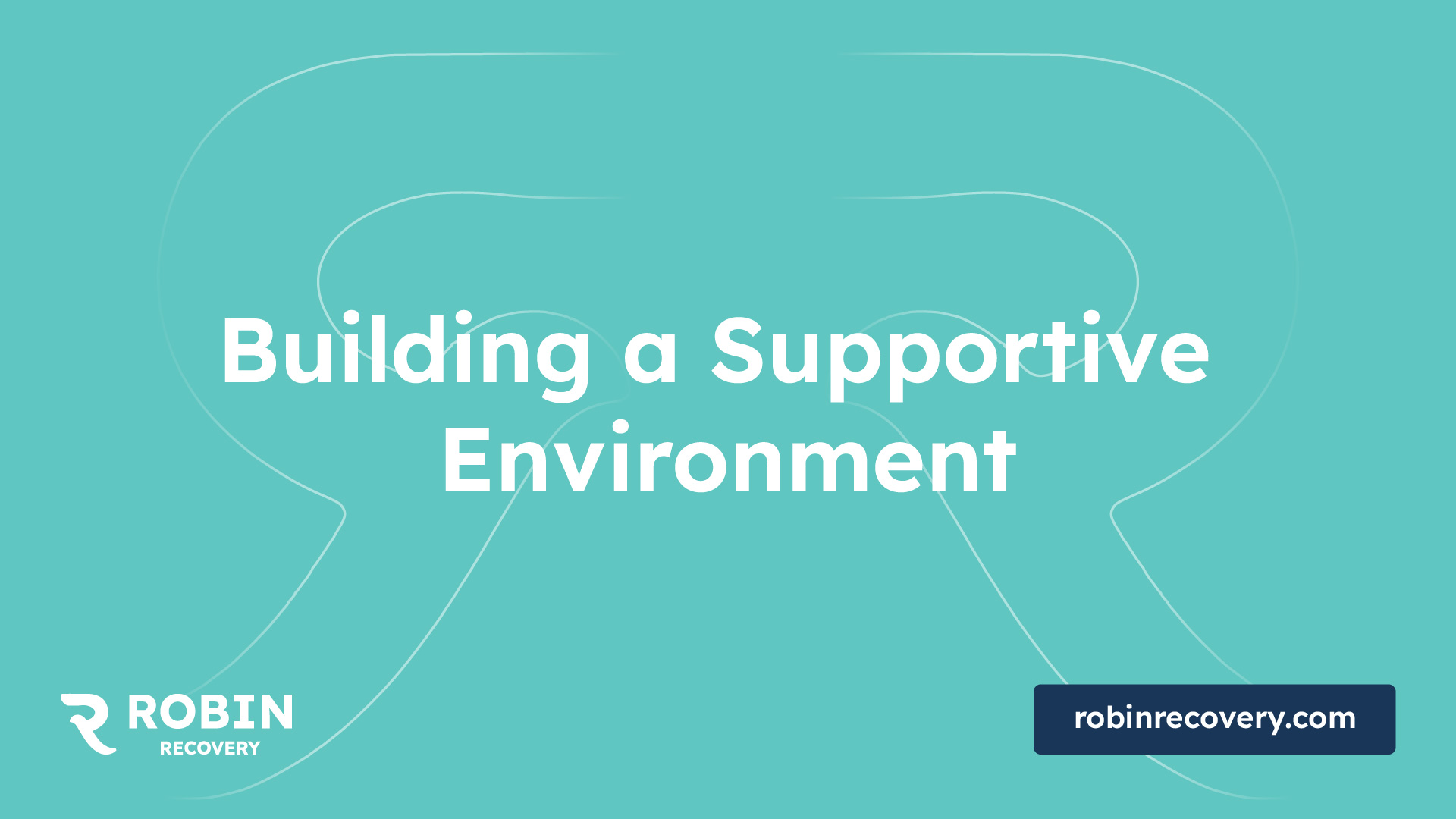How to Avoid Alcohol and Gambling Triggers


Understanding Addiction Triggers
To effectively navigate the road to recovery from addiction, it is essential to understand and address the various triggers that can influence addictive behaviors. Triggers are external or internal cues that prompt individuals to engage in addictive behaviors. By recognizing and addressing these triggers, individuals can empower themselves to overcome addiction and lead healthier lives.
Impact of Triggers on Addiction
Triggers play a significant role in addiction by eliciting cravings and leading to relapse. These triggers can vary from person to person and are often unique to each individual's circumstances and experiences. Understanding and identifying personal triggers is crucial in developing a comprehensive plan to avoid them and maintain long-term recovery. By combining self-reflection with an awareness of external influences, individuals can create a strong foundation to support their recovery and lead more fulfilling lives [1].
Common Triggers for Addiction
Addiction triggers can be broadly categorized into two types: internal and external triggers. Internal triggers are emotional or psychological states that prompt individuals to seek relief or escape through addictive behaviors. Examples of internal triggers can include stress, anxiety, depression, or boredom. External triggers, on the other hand, are environmental cues that can evoke cravings and lead to addictive behaviors. External triggers may include social situations, specific locations, or exposure to certain people or objects [1].
For individuals struggling with gambling addiction, common triggers can include genetic and neurological factors that contribute to the development of addictive behaviors. Additionally, environmental triggers such as exposure to gambling-related advertisements, presence of casinos, or even participation in activities like playing the lottery can also act as triggers [2].
In the case of alcohol addiction, emotional states can be significant triggers. Individuals may turn to alcohol as a way to cope with negative emotions, such as sadness, anger, or loneliness. Social situations can also act as triggers, especially when alcohol consumption is a prevalent part of the environment, such as at parties, bars, or social gatherings [3].
By understanding these common triggers, individuals can take proactive steps to avoid or manage them effectively. Strategies such as refusal skills and managing high-risk situations, which will be discussed in the subsequent sections, can aid in minimizing triggers and empowering sobriety. Furthermore, building a supportive environment and seeking professional help are essential components of maintaining recovery and avoiding triggers [4].
Gambling Addiction Triggers
Understanding the triggers for gambling addiction is an essential step in avoiding relapse and maintaining sobriety. These triggers can be categorized into genetic and neurological factors, as well as environmental triggers.
Genetic and Neurological Factors
Genetic and neurological factors can play a significant role in the development of gambling addiction. Some individuals may have a predisposition for addiction, making them more vulnerable to developing a gambling problem. According to Medical News Today, certain genetic and neurological characteristics may contribute to the risk of compulsive gambling.
Additionally, reports suggest that the speed of play can be a significant risk factor for gambling addiction. Games that provide rapid results, such as slot machines, where there is a short time between placing a bet and seeing the outcome, may increase the likelihood of developing a gambling problem [5].
Environmental Triggers
Environmental factors also play a crucial role in triggering gambling addiction. These triggers can vary from person to person and may include social, psychological, or situational factors. Some common environmental triggers include:
- Availability and accessibility of gambling: Living in an environment where gambling activities are easily accessible can increase the risk of relapse. Being exposed to gambling venues or online gambling platforms may tempt individuals in recovery to engage in risky behavior.
- Peer influence: Socializing with individuals who engage in gambling activities or encourage gambling behavior may act as triggers for individuals in recovery. Peer pressure can make it challenging to resist the urge to gamble, especially in social settings.
- Financial stress: Financial difficulties or stressful situations may act as triggers for individuals with gambling addiction. The desire to alleviate financial problems through gambling can lead to relapse.
To avoid these triggers, it is important to develop strategies and coping mechanisms. Seeking professional help, such as gambling addiction treatment, can provide individuals with the necessary tools and support to manage these triggers effectively.
Building a supportive environment is crucial in maintaining sobriety and avoiding relapse. Surrounding oneself with a supportive network of family and friends who understand the challenges of gambling addiction can provide encouragement and accountability. For guidance on how to support someone with a gambling addiction, refer to our article on how to help someone with gambling addiction.
Remember, seeking help is essential. If you or someone you know is struggling with a gambling addiction, reach out to the National Problem Gambling Helpline at 1-800-522-4700 for assistance [5]. With the right support and strategies in place, it is possible to overcome gambling addiction and lead a fulfilling life in sobriety.

Alcohol Addiction Triggers
Alcohol addiction triggers are specific scenarios, feelings, or experiences that increase the likelihood of a person craving or consuming alcohol. It is important to recognize and understand these triggers in order to effectively avoid them and maintain sobriety [6]. Two common types of triggers for alcohol addiction are emotional states and social situations.
Emotional States as Triggers
Internal alcohol triggers can stem from a range of emotional and psychological states. It's not just negative emotions that can serve as triggers; sometimes, even positive feelings or moods can lead individuals to want to celebrate with alcohol [6]. Some common emotional triggers for alcohol addiction include:
- Stress and anxiety: Many people turn to alcohol as a way to cope with stress or relieve anxiety.
- Sadness and depression: Alcohol may temporarily numb feelings of sadness or depression, leading to a reliance on it as a coping mechanism.
- Boredom: Some individuals may turn to alcohol out of boredom, seeking excitement or stimulation.
Recognizing and understanding these emotional triggers is crucial in developing effective strategies to avoid them and maintain sobriety.
Social Situations as Triggers
Social situations can also act as triggers for individuals struggling with alcohol addiction. These triggers can include:
- Parties and social gatherings: Alcohol is often readily available at parties and social events, making it challenging to resist the temptation.
- Peer pressure: People may feel pressured to drink in social settings where alcohol consumption is the norm, even if they are trying to abstain.
- Celebratory occasions: Events like weddings, birthdays, and holidays can be triggers for individuals who associate these occasions with drinking.
To avoid alcohol triggers in social situations, it is important to develop refusal skills to decline offers of alcohol assertively. Additionally, managing high-risk situations by recognizing and navigating them effectively is crucial. Seeking support from family, friends, and professionals can provide encouragement and guidance throughout the recovery journey. For more information on strategies to avoid triggers and seek support, consider reading our article on how to stop gambling addiction.
Understanding and identifying emotional states and social situations that act as triggers is an essential step in empowering sobriety and maintaining a healthy, alcohol-free lifestyle. By recognizing these triggers and implementing strategies to avoid them, individuals can take control of their recovery journey and reduce the likelihood of relapse.
Strategies to Avoid Triggers
To successfully overcome addiction and avoid relapse, individuals must develop effective strategies to avoid triggers associated with alcohol and gambling. By recognizing and addressing these triggers, individuals can empower themselves on their journey to recovery.
Refusal Skills
Developing refusal skills is an essential strategy for individuals seeking to avoid alcohol and gambling triggers. These skills empower individuals to decline offers of alcohol or opportunities to engage in gambling assertively. By honing these skills, individuals can confidently navigate social situations and effectively communicate their decision to abstain.
To develop refusal skills, individuals can:
- Practice assertive communication techniques, such as stating their decision clearly and confidently.
- Prepare responses in advance to common offers or invitations that may trigger the desire to drink or gamble.
- Seek support from a therapist or counselor who can provide guidance and role-play scenarios to enhance refusal skills.
Managing High-Risk Situations
Managing high-risk situations is another crucial strategy for avoiding alcohol and gambling triggers. High-risk situations refer to circumstances that may increase the temptation or desire to engage in addictive behaviors.
For alcohol addiction, high-risk situations often involve people, places, things, or feelings that remind individuals of drinking and create a strong urge for alcohol. Similarly, for gambling addiction, self-reflection triggers and external influences play a significant role in triggering gambling-related behaviors.
To effectively manage high-risk situations:
- Identify and recognize personal triggers that may lead to alcohol or gambling cravings. This self-reflection is crucial for understanding individual vulnerabilities.
- Avoid situations, places, or people that may trigger the desire to drink or gamble.
- Create a supportive network of family, friends, and professionals who can provide encouragement, guidance, and accountability throughout the recovery journey.
- Engage in alternative activities that provide healthier outlets for emotions and energy. This can include hobbies, exercise, or creative pursuits that divert attention away from alcohol or gambling.
By implementing these strategies, individuals can strengthen their ability to overcome triggers associated with alcohol and gambling. It is important to remember that seeking professional help, such as gambling addiction treatment or alcohol addiction treatment, is crucial for comprehensive support and guidance on the path to recovery.

Building a Supportive Environment
Creating a supportive environment plays a crucial role in avoiding alcohol and gambling triggers. By seeking professional help and developing a strong support system, individuals can establish a foundation that aids in their recovery journey.
Seeking Professional Help
Seeking professional help is an essential step in creating a supportive environment. Counselors or therapists with expertise in addiction treatment can provide specialized guidance and interventions tailored to individual needs. They can help individuals understand their triggers, develop coping strategies, and provide ongoing support and accountability throughout the recovery process.
Professional help may involve a range of treatment options, including therapy sessions, support groups, and gambling addiction treatment programs. These resources offer a safe space for individuals to explore their challenges, gain insights into their addiction, and learn effective strategies to avoid triggers. Professionals can also provide valuable tools and techniques to help individuals maintain their sobriety and navigate challenging situations.
Support System Development
Building a strong support system is equally important in avoiding alcohol and gambling triggers. Family, friends, and support groups can offer emotional support, understanding, and encouragement throughout the recovery journey. They can provide a network of individuals who can relate to the challenges of addiction and offer guidance based on their own experiences.
A support system can help individuals establish clear boundaries, which are essential for avoiding triggers and protecting their recovery journey. By setting limits and effectively communicating them with others, individuals can create an environment that fosters their sobriety. Support system members can also hold individuals accountable, providing gentle reminders and encouragement to stay on track.
Support groups, such as Alcoholics Anonymous (AA) or Gamblers Anonymous (GA), provide a platform for individuals to connect with others who understand their struggles. These groups offer a sense of community, where individuals can share their experiences, learn from others, and receive ongoing support. Participating in support group meetings can help individuals feel less isolated and strengthen their resolve to avoid triggers.
By seeking professional help and developing a support system, individuals can build a supportive environment that empowers their sobriety. The combined efforts of professional guidance and the encouragement of a support network can significantly increase the chances of long-term recovery and provide the necessary tools to navigate triggers effectively. Remember, if you or someone you know is struggling with alcohol or gambling addiction, reach out for help and explore the available resources to start the journey towards recovery.
References
[1]: https://www.armsacres.com/blog/avoid-alcohol-and-gambling-triggers
[2]: /powerball-can-lead-to-gambling-addiction
[3]: /how-to-stop-gambling-addiction
[4]: /how-to-help-someone-with-gambling-addiction
[5]: https://www.medicalnewstoday.com/articles/15929
[6]: https://www.priorygroup.com/blog/understanding-addiction-triggers
